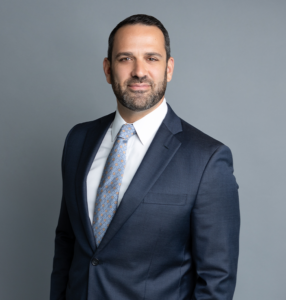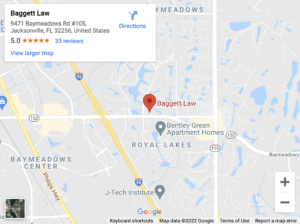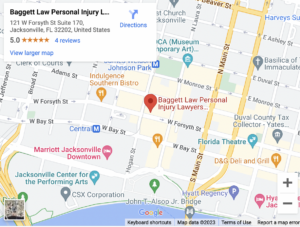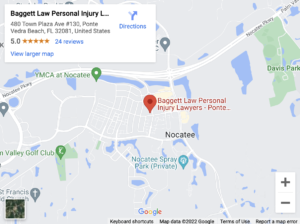
Personal injury lawyers can represent your interests as you battle insurers and at-fault parties for injury compensation. Their job is to deal with the legal and insurance issues so you can focus on your health. This frees up your time and gives you a source of knowledge and experience that can help you get maximum compensation.
But many accident victims start their claims on their own and seek assistance only after they run into problems. While claimants are always free to represent themselves, this strategy exposes them to risks.
What Injury Lawyers Do

Most accident cases start with an insurance claim. Even if you did not get injured in a car accident, the at-fault party might still have an insurance policy that will pay for your accident-related losses.
Some examples of accidents where an insurance policy may cover your injuries include:
- Slip and fall accidents might be covered by homeowner’s insurance or general business liability insurance
- Dog bites might be covered by the dog owner’s homeowner’s insurance
- Medical malpractice might be covered by the healthcare provider’s professional liability insurance
An injury lawyer will start your case by identifying all possible sources of compensation.
Some situations do not provide a clear choice of where to file a claim. For example, if you get injured in a workplace accident, you can probably file a claim against your employer’s workers’ compensation insurance. But you might also have a third-party claim if a party other than your employer injured you.
Preparing and Filing the Claim
The lawyer will prepare and file your insurance claim. The claim includes a description of what happened and the losses the accident caused. Your lawyer will include supporting evidence, like medical records, with the claim.
The lawyer will become the point of contact with the insurance company. If the insurer denies the claim, the lawyer can respond with arguments and evidence. And if the insurer makes a settlement offer, your attorney can negotiate for the best possible settlement.
Filing a Lawsuit
In many situations, your case will settle without resorting to a lawsuit. But occasionally, you will need to file a lawsuit because:
- The insurer refuses to negotiate
- The insurer persists in an incorrect claim denial
- The statute of limitations has almost expired
Only about 3% of injury lawsuits reach trial. So even if your lawyer files a lawsuit, you will probably never see a courtroom. But a lawsuit can provide pressure to keep your case moving forward.
Insurers do not like paying legal bills when they do not want to fight. And insurers know that juries do not sympathize with insurance companies. As a result, a lawsuit helps your lawyer pressure the insurer into making a fair offer.
When to Hire an Injury Lawyer
You can run into problems at many points during this process. Some situations in which you should consider talking to a lawyer include:
You Suffered a Significant, Permanent Car Accident Injury
Because of Florida’s no-fault insurance system, injury lawyers play an important role in protecting accident victims. After a minor crash, accident victims file a no-fault claim with the insurer for the vehicle they were in. This means everyone, including the driver who caused the crash, will have access to medical and disability benefits.
But no-fault insurance limits an accident victim’s ability to sue. Accident victims can only sue if their medical expenses exceed their no-fault benefits or if a victim suffers from a significant and permanent injury.
If you suffer a significant, permanent injury, you should consider calling a lawyer to walk you through the process of pursuing a claim against the at-fault driver.
The At-Fault Party Has No Insurance
If the at-fault party has no insurance, you can only get compensation by filing a lawsuit. For your lawsuit, you will probably want to have a lawyer prepare the pleadings to start your lawsuit, gather evidence, and present your case to a jury.
The Other Party Blames You for the Accident
If the other party blames you for the accident, you risk losing part of your compensation. Under Florida law, you lose a proportional amount of your compensation based on your share of the blame.
Suppose that you were injured in a car crash where you were speeding and the other driver ran a red light. A claims adjuster might assess 20% of the blame to you because you might have been able to stop if you had not been speeding. As a result, you can only get 80% of your losses in your case.
A lawyer can help you minimize your share of the blame.
Your Claim Was Denied
If your claim gets denied, you may have an opportunity to overcome the denial. But insurers often use legal and technical jargon in claim denials to confuse and frustrate claimants.
A lawyer can interpret the claim denial and help you assemble the evidence and legal arguments to get your claim accepted. And if the adjuster persists in an unfounded claim denial, a lawyer can prepare a lawsuit against the at-fault party.
You Received a Low Offer
You can sometimes reach an impasse with the insurance company even after the adjuster accepts the claim. Adjusters often start with lowball offers to see if they can get rid of the case quickly and cheaply. They know of your desperate situation and hope you will accept the first offer.
A lawyer can often jumpstart negotiations. Lawyers have negotiating skills and know the value of your case. As a result, they can try to get the best possible offer from the insurer.
Choosing the Right Lawyer for Your Situation
Almost all injury lawyers provide free consultations. This consultation helps the lawyer assess your case. It also helps you assess the lawyer.
You have no obligation to hire a lawyer after a free consultation. Thus, you lose nothing by speaking to a lawyer as early as possible after your accident. The lawyer can explain your legal rights and help you decide whether you need a lawyer to help with your case.
Call Baggett Law Personal Injury Lawyers to get a free consultation and discuss your accident and whether you should hire a personal injury lawyer for your case at (904) 396-1100.




